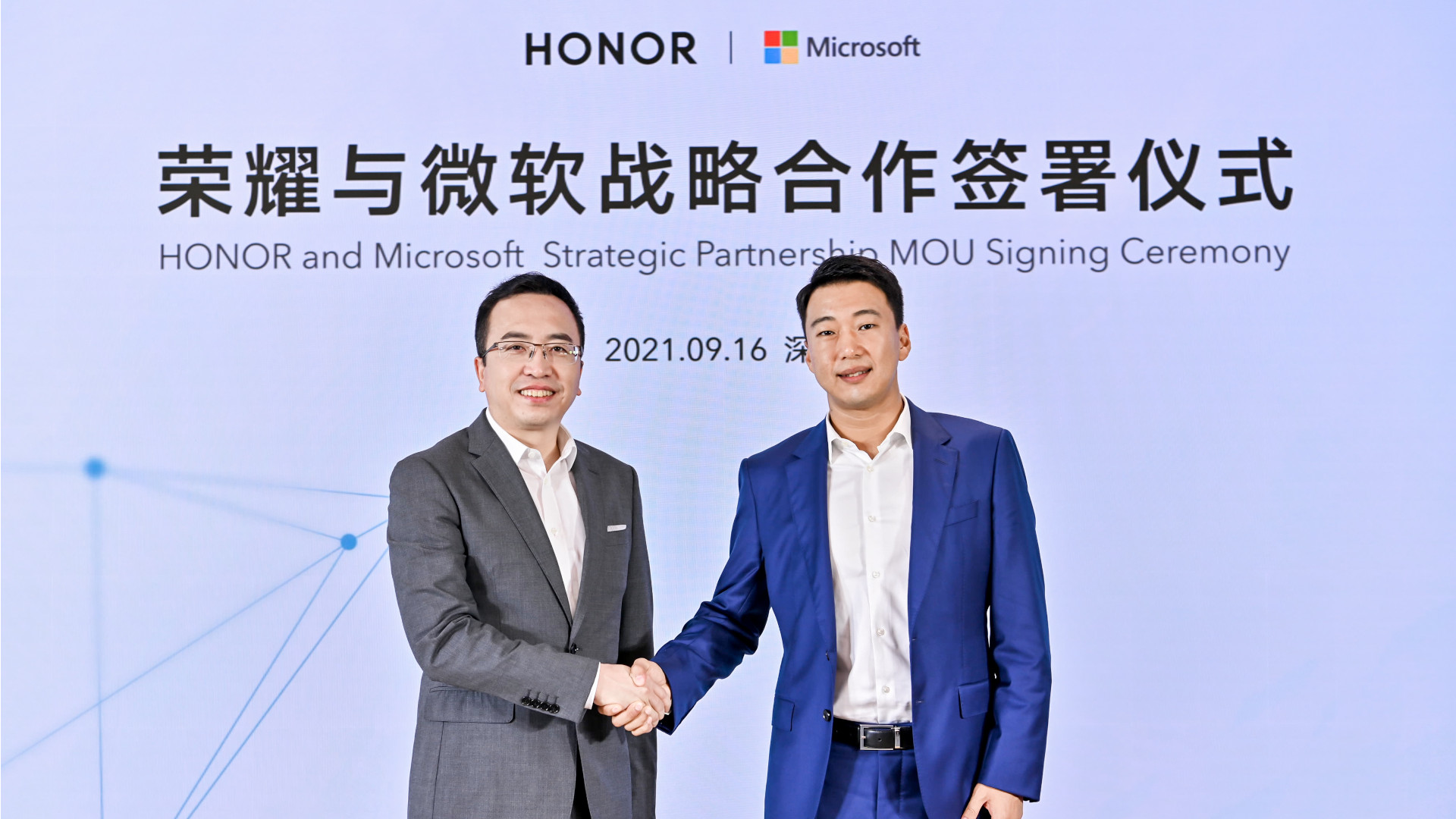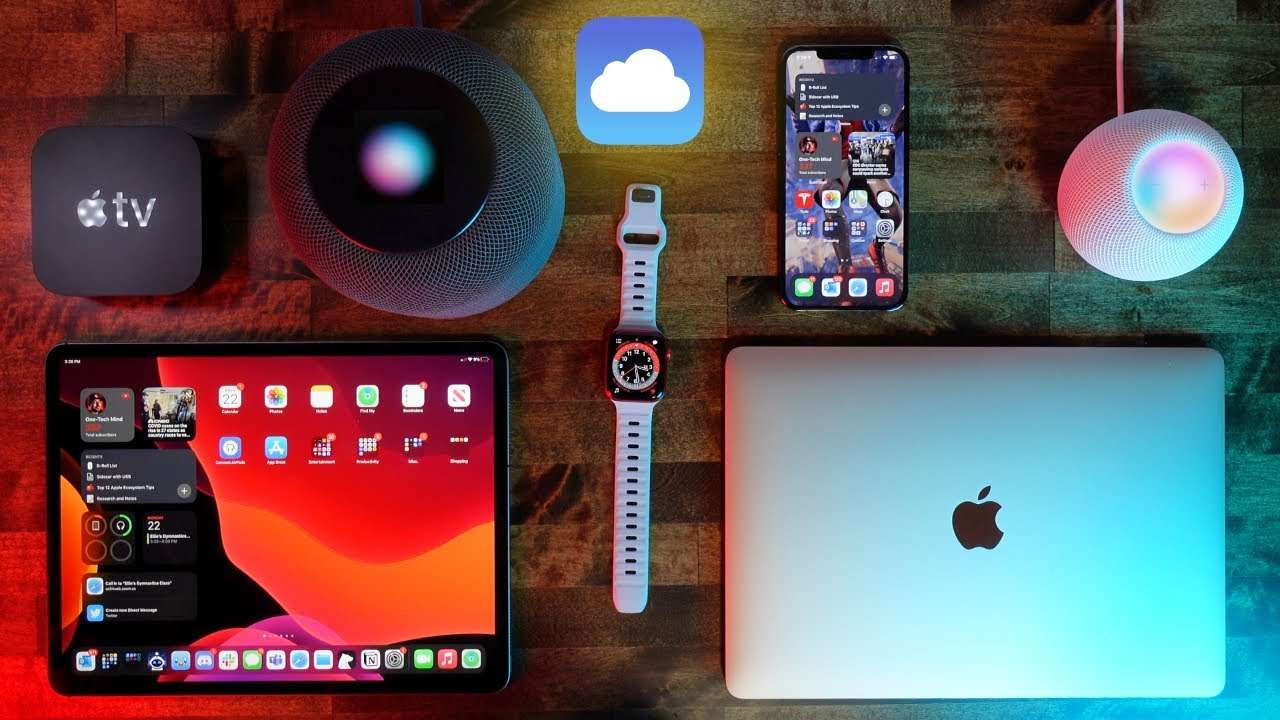Microsoft is partnering with Honor to make one of the first Windows 11 laptops
Laptops, AI developments and ecosystems

Chinese tech manufacturer Honor has announced that it's gone into partnership with Microsoft to develop AI and other end-user devices, while also revealing that the upcoming Honor MagicBook V 14 will be one of the first laptops to ship with Windows 11 installed.
Chairman and CEO of Microsoft GCR Dr. Hou Yang said: “With the rise of hybrid work and ambient intelligence, customers expect more convenience, security, and better interaction from their mobile computing devices, systems, and applications, for both work and home.
"Microsoft hopes to accelerate the integrated development of software and hardware intelligence by continuously deepening and expanding our strategic cooperation with Honor, to bring richer experiences to end-users.”
- Windows 11 features and everything you need to know
- We show you how to uninstall a Windows 10 update
- These are the best Honor phones in 2021
An honorable deal
Honor, once a sub-brand of popular Chinese manufacturer Huawei, was sold off by its mother company back in 2020 so that the company could "make it through a tough time", but has since seen some success on its own. Now that it's escaped from the shadow of Huawei, Honor mobile devices have regained access to features like the Google Play store that are widely used in the West, and that could give it the edge over its old parent company.
Honor will develop and adapt existing AI speech and AI translation services based on Microsoft Azure to support Honor’s Smart Assistant YOYO. We're also going to see Microsoft and Honor working together to develop computing, laptop and productivity applications which will likely aid in supporting Honor's ‘1+8+N’ strategy (which ties into ecosystem development).
We've been waiting for news to start trickling in to find out which brands will be offering the first wave of Windows 11 laptops, and while we know there's hardly going to be a shortage, we weren't expecting to see Honor at the front of the queue.
Previous models of Honor's MagicBook line such as the MagicBook 14 (2021) and the MagicBook Pro proved themselves to be a decent buy, and with a partnership with Microsoft now in the bag we could see some exciting developments in the computing hardware market as a result.
Sign up for breaking news, reviews, opinion, top tech deals, and more.
Analysis: Is an Ecosystem in the works?

If there's something Chinese tech companies are doing well, it's ecosystems. We rarely see it over in the West thanks to various blacklists from countries like the US and the UK against companies like Huawei, but this is a company that has created a thriving ecosystem akin to that of Apple, with cloud databases, smartphones, computing devices and smartwatches.
Of course, other companies outside of Apple have had their own stab at creating a self-contained bubble of devices to lure in consumers with varying success, but Samsung and Google's efforts have fallen flat against Apple's achievements.
It's unlikely that Microsoft is putting all of its eggs into one Honor-shaped basket, but as it was stated that this partnership will develop AI and end-user devices, we could see other well-rounded ecosystems emerging that finally give Apple a run for its money.
AI and smart devices are booming right now, and while Honor isn't a household name over in places like the US just yet, it's known in China for its developments in smart home technology. A push is needed from both sides to break the cultural and political barriers that are currently in place, but any competition is welcome to avoid a monopoly on technology ecosystems.
- These are the best laptops of 2021

Jess is a former TechRadar Computing writer, where she covered all aspects of Mac and PC hardware, including PC gaming and peripherals. She has been interviewed as an industry expert for the BBC, and while her educational background was in prosthetics and model-making, her true love is in tech and she has built numerous desktop computers over the last 10 years for gaming and content creation. Jess is now a journalist at The Verge.